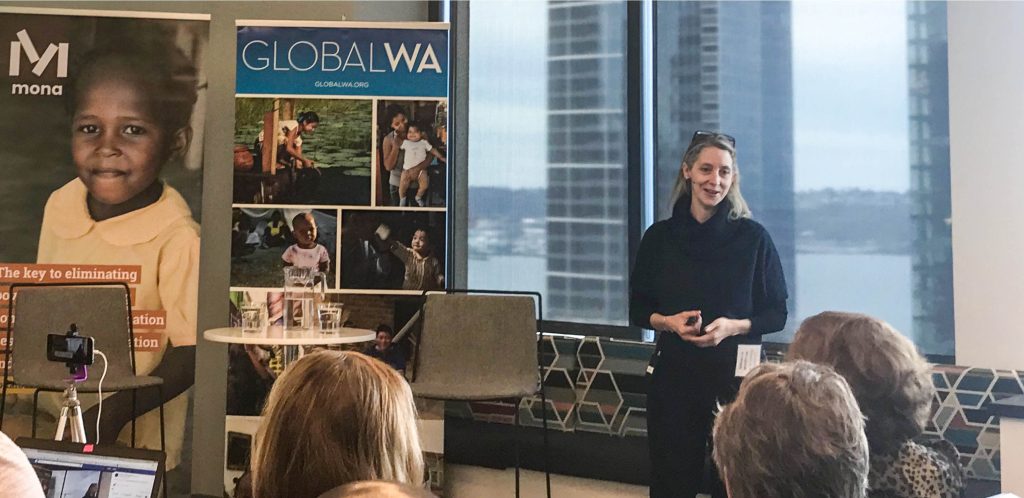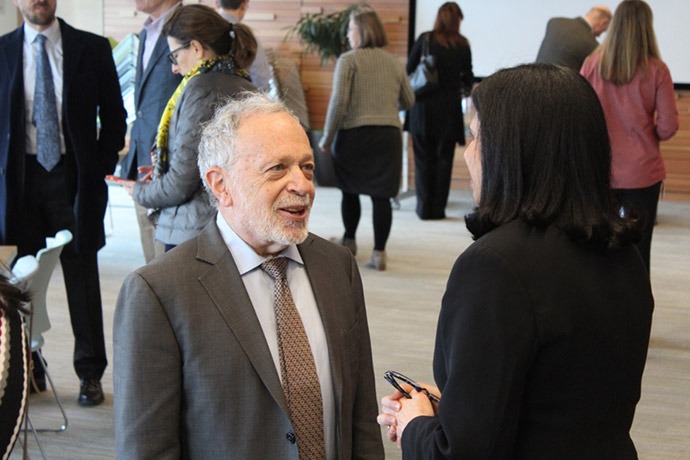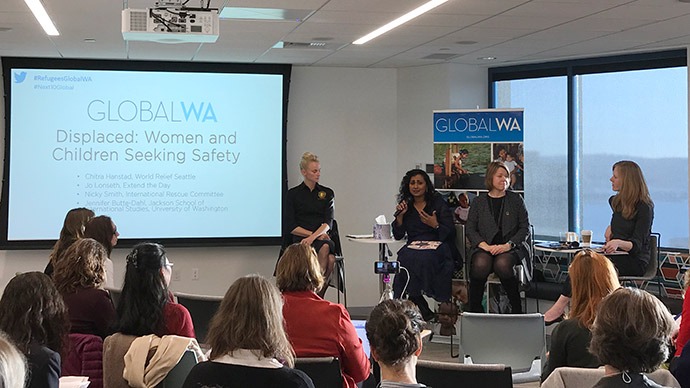Posted on March 19, 2018
By: Ulrike Hoessle

Rebecca Winthrop, senior fellow and director of the Center for Universal Education at Brookings. Photo: Ulrike Hoessle.
If you visit one of the poor communities around Lucknow in the Indian State of Uttar Pradesh, you might be amazed to see a school with a dirt floor, where teacher and students are discussing and applying the lessons from an educational video in the local language. That is how the non-profit Digital Study Hall, with support from Global Washington member Mona Foundation, mitigates the lack of highly trained teachers and provides high quality education to the poorest.
Continue Reading
Posted on March 6, 2018

Robert Reich speaks with Meena Rishi, PhD. Photo: Nathan Sharpe/WACSeattle
Supporters of Global Washington and World Affairs Council met on Monday, March 5, with Robert Reich, the former Secretary of Labor under President Clinton. A political commentator, professor, and author, Reich previously served in the administrations of Presidents Gerald Ford and Jimmy Carter.
In town to promote his new book, The Common Good, Reich was scheduled to address a sold out Town Hall event that evening. At the invite-only gathering at Global Washington, Reich answered wide-ranging questions posed by the audience, and moderated by Seattle University economics professor, Meena Rishi, PhD.
Rishi kicked off the conversation with a provocative question. While Reich’s new book mourns the erosion of the common good, she asked whether the rules of the game were ever really fair.
Continue Reading
Posted on February 16, 2018
By Ulrike Hoessle

Panelists speaking about challenges of women & children fleeing conflict.
From L to R: Jo Lonseth (Extend the Day), Chitra Hanstad (World Relief Seattle), Nicky Smith (IRC), Jen Butte-Dahl (UW). Photo: Ulrike Hoessle
Imagine, suddenly in the middle of the night, you learn that a neighboring village has been attacked and you know that it is time to leave. You wake up your children, pack some valuables and provisions, and leave your home with your family – not knowing whether you will ever be able to return. You depart by foot or pay for a ride in an overpriced, crowded, and unsafe vehicle. You experience assault, even sexual assault, and you do not know where to go or whom you can trust. Once you arrive at a safer place you have to figure out – with thousands of other people – where to stay, how to get food and clean water, how to earn some money, how to access health services for diseases such as diarrhea or the common cold, both of which are normally curable, however, under these dire circumstances, might be deadly (especially for your younger children), and you realize that you may never return home again.
Continue Reading


